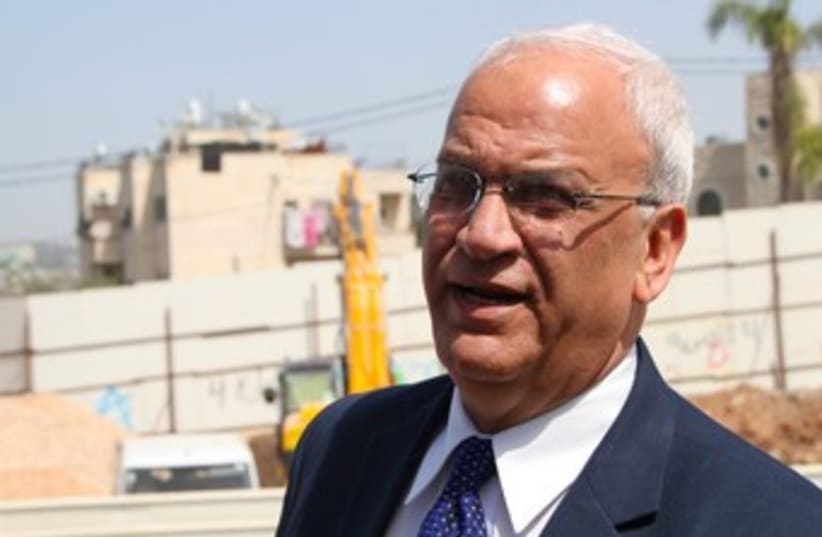Israel, PA give positive nod to Arab League proposal
PMO positive about Arab Peace Initiative proposing "minor" land swaps as part of Israeli-Palestinian agreement, based on the 1967 lines; Erekat: Might consider minor changes that "don't harm Palestinian interests."
